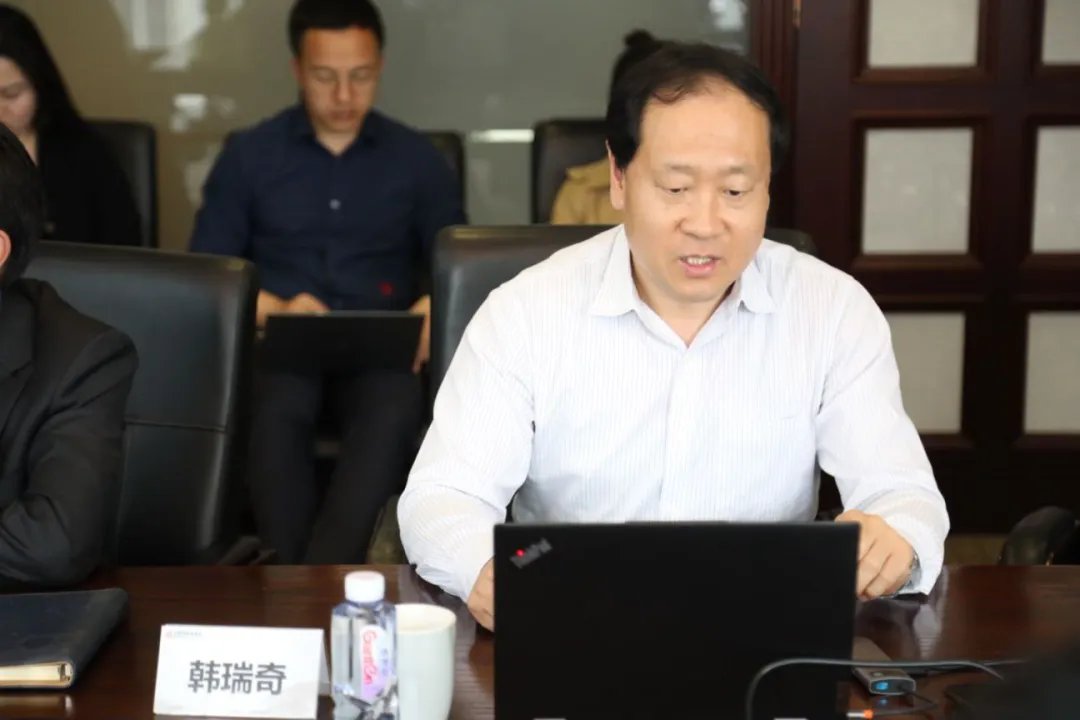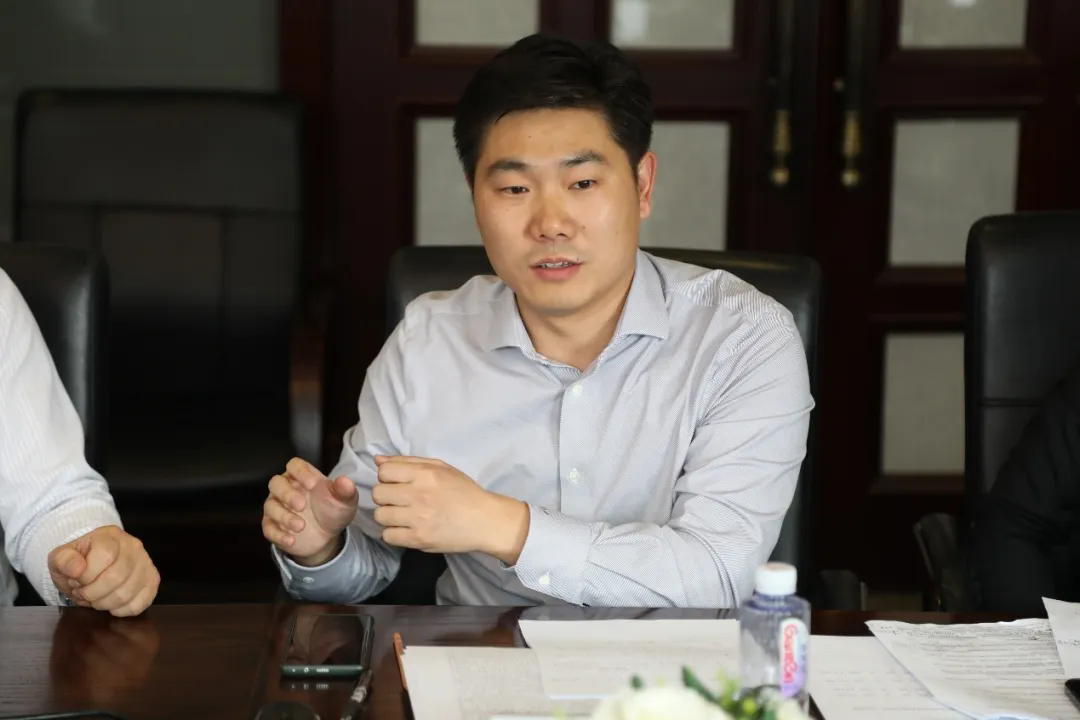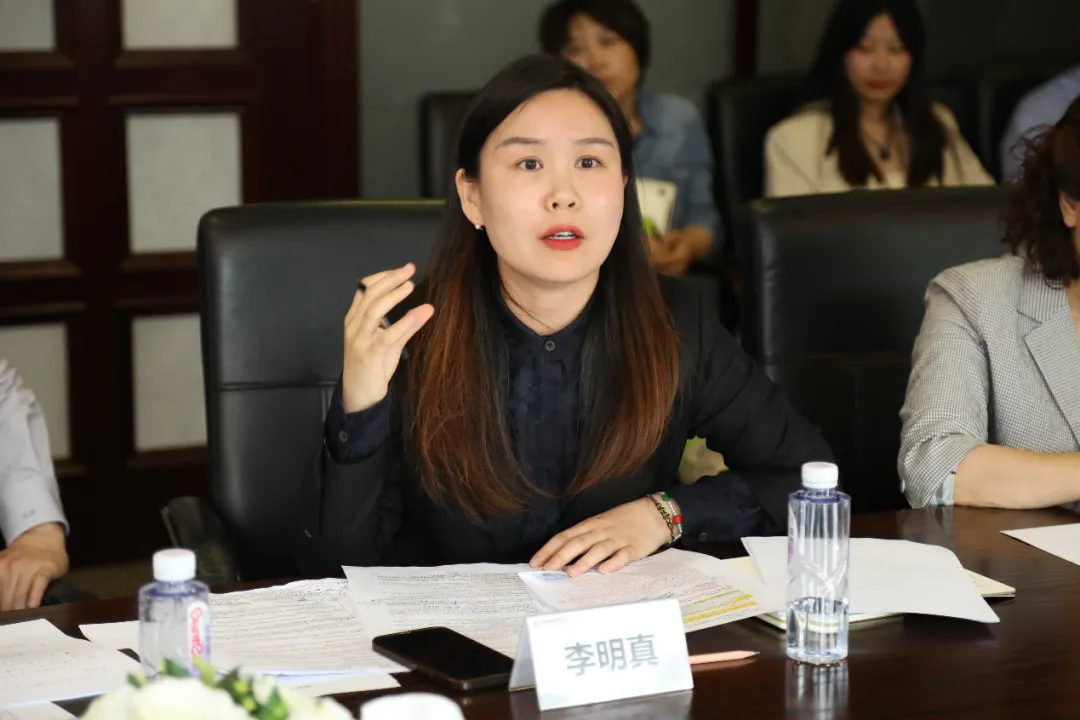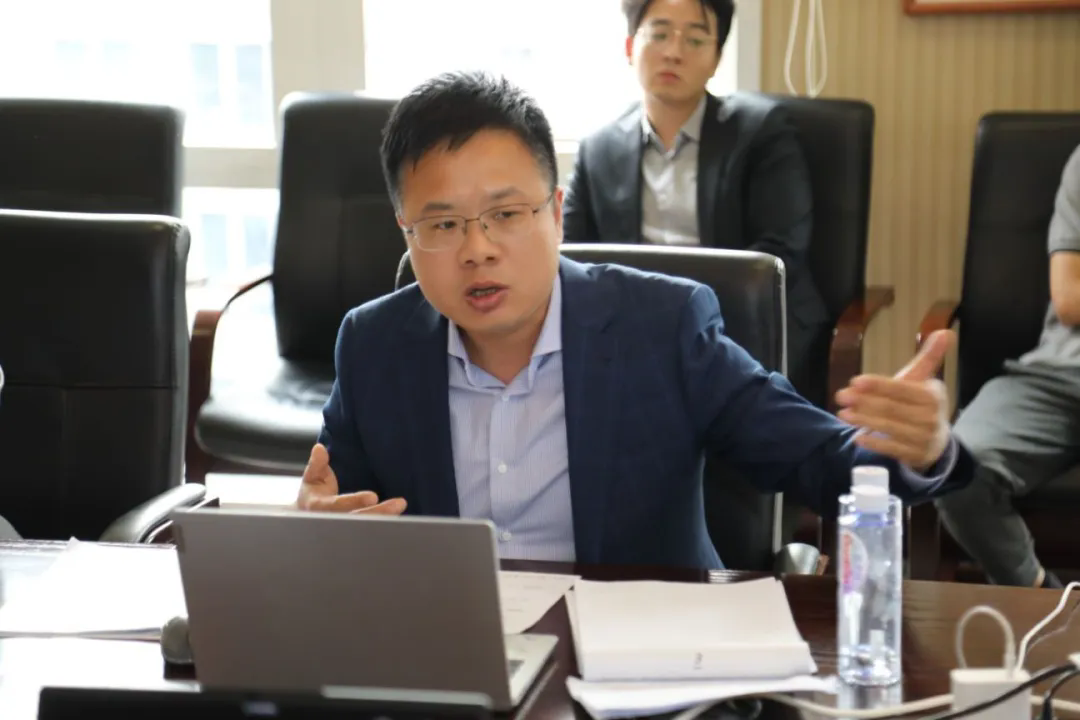On April 29, 2024, the 36th issue of the lecture series of King&Capital Criminal Defense Research Center was successfully held. This event was hosted by the Criminal Law Department and invited Mr. Han Ruiqi from King&Capital Law Firm to give a lecture on “Reconstruction and Defense Response to Tax Evasion Offense and Unauthorized VAT Invoice Offense under the New Tax-Related Judicial Interpretation”. Mr. Ding Wei, Mr. Li Mingzhen and Mr. Zhang Kai from the Criminal Affairs Department had a talk.


The event was hosted by Mr. Zang Desheng. Mr. Zang said that this seminar is a professional seminar to respond to the impact of the revised judicial interpretation on the defense of tax-related cases at the time of the introduction of the new judicial interpretation on tax-related cases. Under the premise of high incidence of tax-related criminal cases and more subdivided areas of criminal defense specialization, this training is of great significance for lawyers to improve their defense skills in tax-related criminal cases and enterprises to prevent tax-related risks.
First of all, Han Ruiqi from the new judicial interpretation of article 1, paragraph 1 (c) “false offsetting of input tax” analysis and article 10 of the specific behavior of false VAT invoices and what is the loss of national tax as an entry point, clearly show their own point of view on the crime of tax evasion, false VAT invoices crime:
I. False invoicing behavior + offsetting behavior = tax evasion crime
Second, false invoicing behavior + fraud = false invoicing crime
(Note: “fraud” refers to the use of VAT invoices deduction function to commit fraud)
Mr. Han pointed out that the simple act of false VAT invoice does not constitute the crime of tax evasion or false VAT invoice. He combined with the principle of VAT special invoice taxation that VAT payable is the difference of output tax minus input tax, when the input tax is greater than the output tax, the undeducted input tax will form tax credit. At this time, if the perpetrator has the behavior of false VAT invoice, if the part returned after offsetting is the tax that has been paid to the state before, then it constitutes the crime of tax evasion; if it completely uses the offset function of the false VAT invoice to cheat the state's tax, then it is the false VAT invoice.
According to Mr. Han, the crime of false VAT invoice is a crime of result, and only the result of “causing loss of national tax” constitutes this crime. Because in the crime of false invoicing of VAT, in addition to the act of false invoicing explicitly stipulated in Article 205 of the Criminal Law, the act of offsetting is also implied: firstly, the act of false invoicing plus the act of offsetting is the complete behavioral pattern of the crime of false invoicing of VAT; secondly, this is the inevitable result of the objective interpretation. Under the strong supervision situation of “Golden Tax III”, the tax authority can monitor every VAT invoice, if the upstream invoicing enterprise has not completed the tax, the downstream invoiced enterprise can't offset, even if the time difference of the tax period has been offset, the input tax amount must be transferred out in the next tax period.
In addition, Mr. Han further proved from the point of view of whether the “loss of national tax” in the crime of false invoicing refers to the use of false invoicing to fraudulently obtain the amount of VAT retained and refunded, and that the “loss of national tax” is the reduction of national tax rather than uncollected tax, i.e., from the point of view of whether the property is transferred to the possession or not, that Only the result of “causing loss of national tax” constitutes the crime of false VAT invoicing. Throughout the lecture, Mr. Han used logical theories and knowledge of tax law to clarify his viewpoints, which provided new ideas for handling such cases.

Afterwards, Mr. Ding Wei shared his thoughts on the issue of demarcation between the crime of tax evasion and the crime of false VAT invoice after the introduction of the new Interpretation. Mr. Ding pointed out that the Supreme Court put forward an important concept “the scope of taxable obligation” in the article “Understanding and Application”. According to the viewpoint of the Supreme Court, even if the taxpayer adopts the means of false invoicing and deduction, as long as the tax deducted is within the scope of taxable obligation, the tax evasion shall be punished, and if the false invoicing and deduction exceeds the scope of taxable obligation, the part of the excess shall be established as the crime of false invoicing of VAT special-purpose invoices. This view of the Supreme Court is subversive, and there is a huge difference between the determination of tax evasion and false invoicing in the previous judicial practice. Whether this view can be implemented in the future judicial practice needs to be further confirmed. In addition, Mr. Ding also shared his thoughts on the determination of national tax loss and discussed the determination of national tax loss in cases of tax evasion, false invoicing and fraudulent export tax refund.

Starting from the two acquitted cases, Mr. Li Mingzhen shared that in the judicial practice, there already exists the determination of the crime of false VAT invoices with the element of causing loss of national tax money, which further proves the viewpoint of Mr. Han. Although the previous legislation has not been clearly stipulated in this regard, and the new judicial interpretation is only a negative enumeration of the expression “for the purpose of inflated performance, financing, loans, etc. not to fraudulently offset the tax, and there is no fraudulent loss of tax due to offsetting, not to be punished by this crime”, but in fact, in recent years, the jurisprudence of the practice session is slowly moving toward However, in fact, in recent years, the jurisprudence of the practice has been slowly moving towards the crime of false invoicing of VAT with the loss of tax as an element, for example, the jurisprudence of Guangdong Provincial Higher People's Court (2019) Guangdong Criminal No. 4, Liaoning Provincial Higher People's Court (2022) Liao Criminal No. 2, and so on, all of which explicitly states that “only the actual loss of national tax” constitutes the crime of VAT invoicing. Finally, Mr. Li used the definition of the crime of fraudulent export tax rebate and tax evasion in Article 204(2) of the Criminal Law to demonstrate the logic and rationality of Mr. Han's viewpoints in this seminar.

Regarding the construction of the crime of false VAT invoicing, Mr. Zhang Kai believed that the speaker, Mr. Han Ruich, put forward a novel, bold, and logical viewpoint, which brought a brand new perspective to the understanding of the constituent elements of this crime, and opened up a new way of thinking for lawyers to engage in the defense of false VAT invoicing. Regarding the understanding of the crime of false VAT invoice, Mr. Zhang Kai also shared his own points of knowledge: first, he introduced the background knowledge of VAT. VAT is the number one tax source in China, and the amount of VAT in FY2023 accounted for 38.2% of the country's total tax revenue, the status of VAT highlights the importance of its legal interest protection, which may have an impact in the doctrinal interpretation of VAT; taxpayers and tax-negative persons are inconsistent in VAT, the essence of VAT is a consumption tax, and VAT paid by the downstream to the upstream is in the nature of advances so that it is to be transferred downstream in layers and layers, and this perspective can understand the essence of VAT loss; secondly, the unlawful nature of the crime of false invoicing of VAT, theoretically and practically, is very controversial, and there are so many kinds before the recent new judicial interpretation, such as behavioral offenses, dangerous offenses, result offenses, purposeful offenses, purposeful offenses + result offenses, and offsetting and refunding mechanism, etc., and these different understandings have a direct impact on the understanding of the constituent elements of this crime. According to the new judicial interpretation and the understanding of the Supreme People's Court, this crime should be the understanding of purpose crime or purpose crime + result crime, which is more appropriate, to be further discussed, and practice to promote; again, by comparing the fraud crime, fraudulent export tax rebate crime of the type of behavior, the constitutive elements, elaborated on the crime of fraudulent issuance of VAT invoices, the “loss of national tax” understanding. The understanding of “loss of national tax money” in the crime of false VAT invoice.

Focusing on the difficult issue of “legal characterization of tax deduction by false VAT invoices” in tax crimes in judicial practice, the seminar comprehensively and in-depthly discussed the demarcation between the crime of false VAT invoices and the crime of tax evasion from the principle of VAT taxing, the relevant criminal law of VAT, and the norms of administrative law, providing new ideas for lawyers to deal with this kind of cases. It provides new ideas for lawyers to handle such cases.



